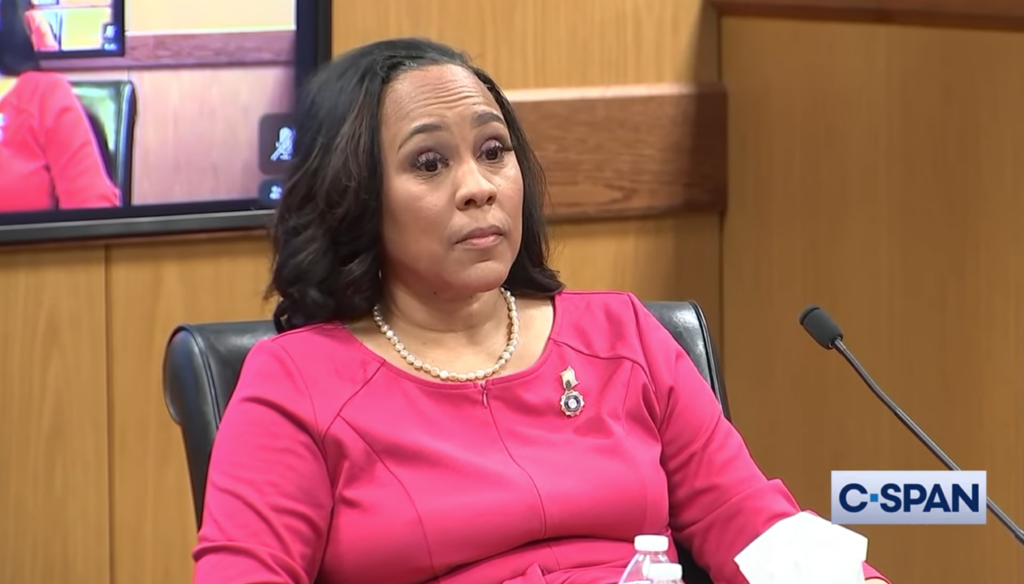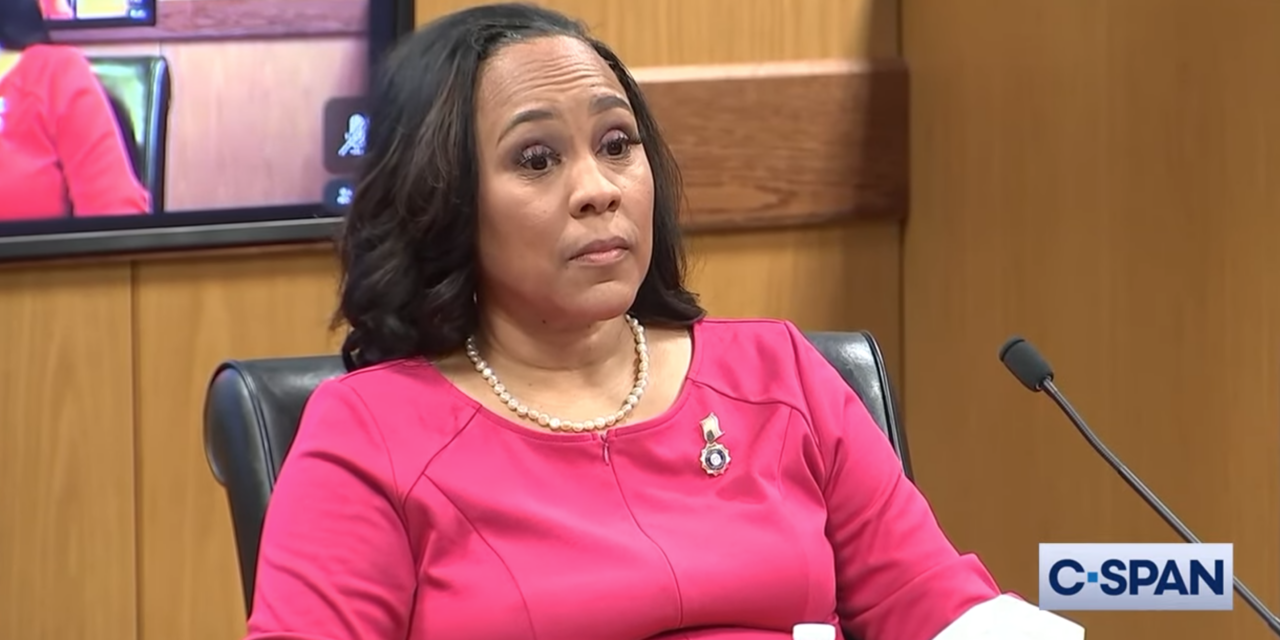Fulton County District Attorney Fani Willis’ (96L) affair with Nathan Wade, a special prosecutor for the Georgia election interference case, has put her investigation into former U.S. President Donald Trump and his allies’ attempted interference in Georgia’s 2020 presidential election at risk.
Fulton County Superior Court Judge Scott McAfee (10C) said he would release his decision on whether he will disqualify Willis from the investigation into Trump’s alleged attempt to overturn Georgia’s 2020 presidential election results within the next two weeks. If Willis is disqualified, the Prosecuting Attorneys’ Council of Georgia would need to find a replacement prosecutor for the case.
Closing arguments for the hearing to disqualify Willis ended on March 1. The case was originally brought by Michael Roman, a co-defendant of Trump in Willis investigation and his defense attorney Ashleigh Merchant.

Fulton County District Attorney Fani Willis (94L) testifies at the Lewis R. Slaton courthouse. (Courtesy of Cable-Satellite Public Affairs Network)
Willis has previously disclosed that she and Wade, a special prosecutor for the Georgia election interference case, have had a “personal relationship” since 2022 but denied receiving any financial benefits from the relationship.
Merchant first moved to have Willis and Wade disqualified from the case in January. Emory University School of Law Visiting Associate Professor of Practice John Acevedo believes this was an attempt to delay Trump’s trial and bring it to the public to help the former president’s “narrative.” He called this a “good defense strategy.”
“This plays into Trump’s solid and classic playbook, which is to cause distraction and delay,” Acevado said.
A Jan. 31 Bloomberg News/Morning Consult poll found that 53% of voters across seven swing states would not vote for the former president if he was convicted of a crime. Additionally, 20% of people who voted for Trump in 2020 said they would not vote for him this year if he were convicted.
Wake Forest University School of Law (N.C.) Professor of Practice Ellen Murphy said that Willis’ hearings have taken so long because of the complexity of the case and McAfee’s “careful” approach to scheduling the hearings.
“There were some significant attorney-client privilege issues that only Judge McAfee could deal with,” Murphy said. “He needed to look at those texts to make a determination about whether or not they were subject to privilege and whether or not Attorney Wade’s lawyer could testify to them. That took some time.”
Unlike Trump’s criminal case where the burden of proof is on the prosecution, the burden falls on the former president’s defense team to disqualify Willis, Georgia State University Assistant Professor of Law Anthony Kreis said.
“It was on the defendants here to produce evidence, to show that there was something untoward or impermissible that Fani Willis essentially profited off these prosecutions and they just really haven’t been able to show that quite yet, well, really at all,” Kreis said.
Murphy said he does not believe that Willis should be disbarred but is unsure of what McAfee will decide.
“I personally do not believe that the alleged conflict of interest resulted in a personal benefit that would prevent … the defendants from getting a fair trial,” Murphy said.
However, Kreis believes that McAfee will not disqualify Willis from the case because there is a “very high” bar that must be met to disqualify someone for a conflict of interest. However, Kreis said her disqualification is “not implausible.”
Spencer Friedland (26C) is from Long Island, New York and is the Emory Wheel's Managing News Editor. He is a Philosophy, Politics and Law major and has a secondary major in Film. Spencer is also a part of the Franklin Fellows program at Emory.






